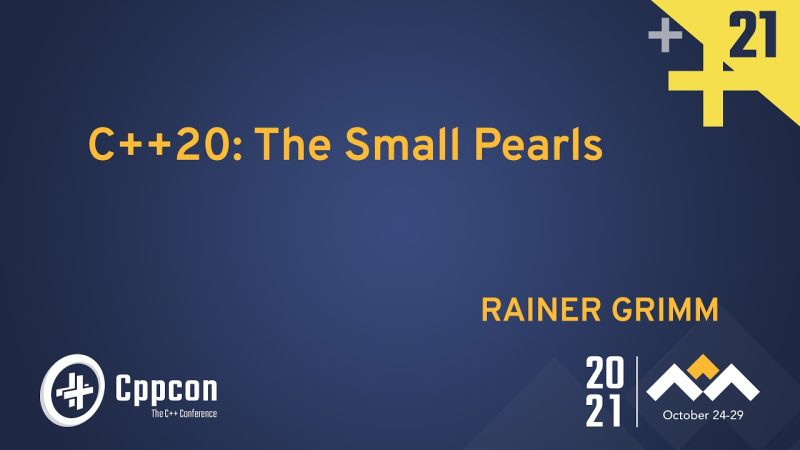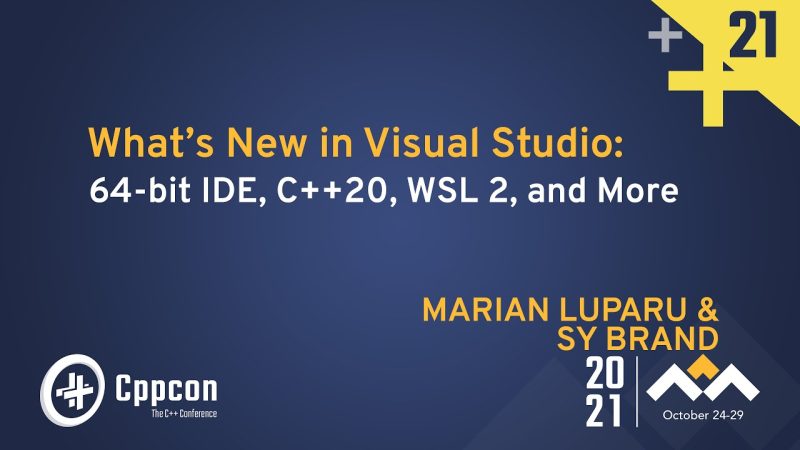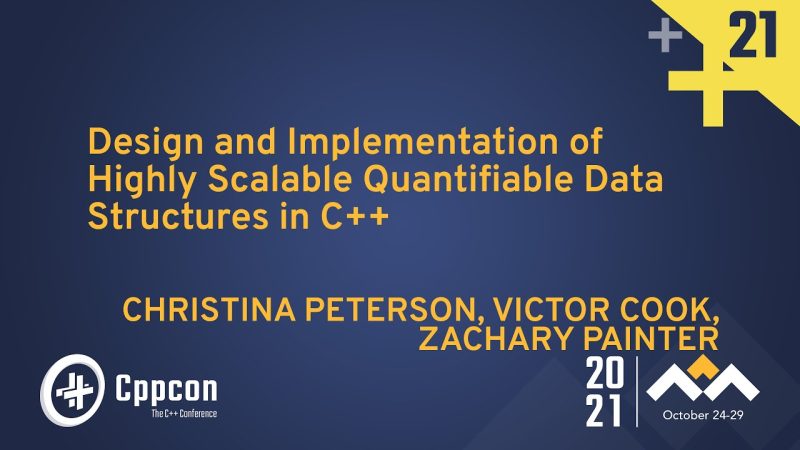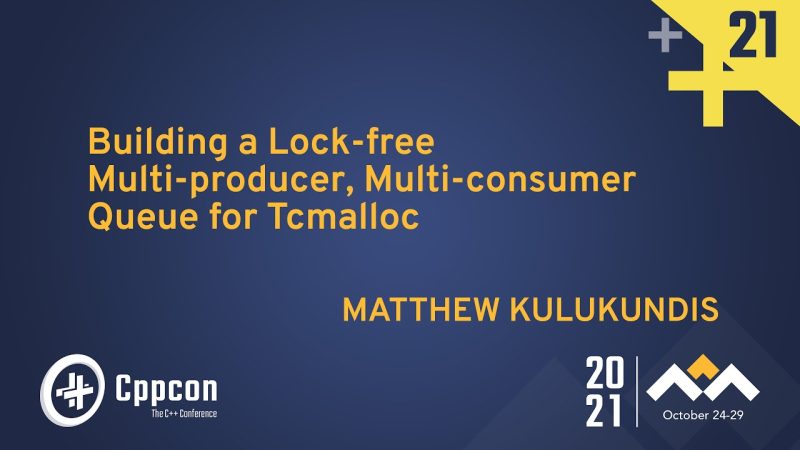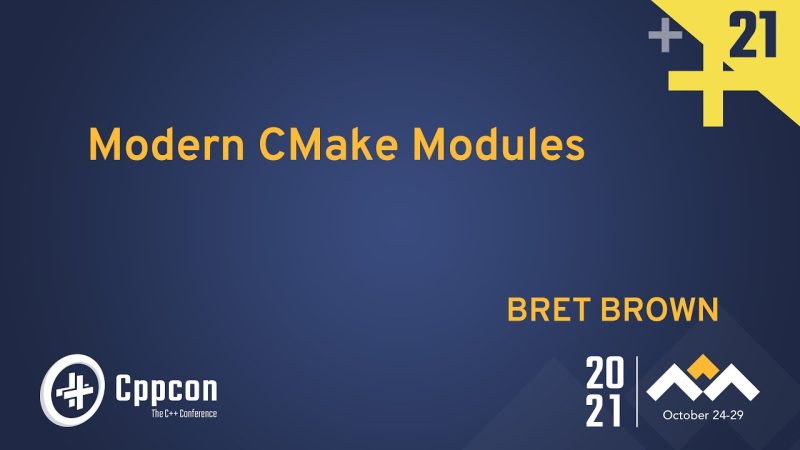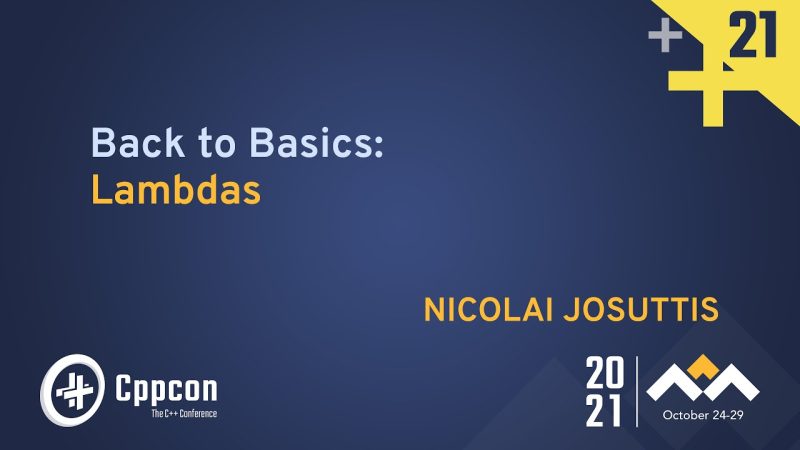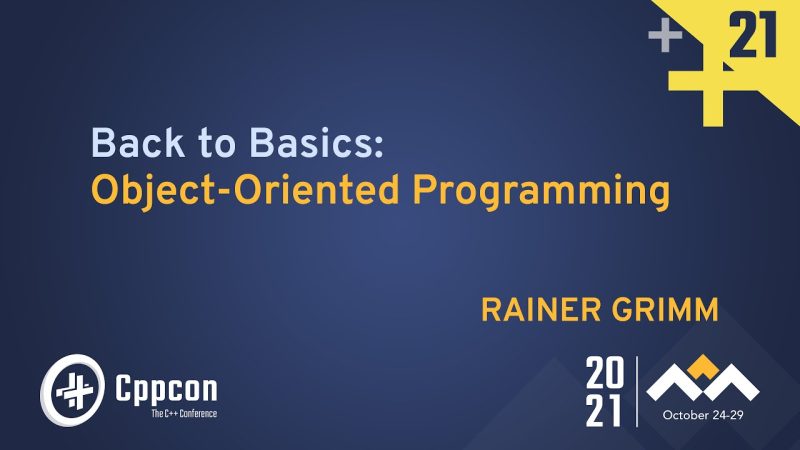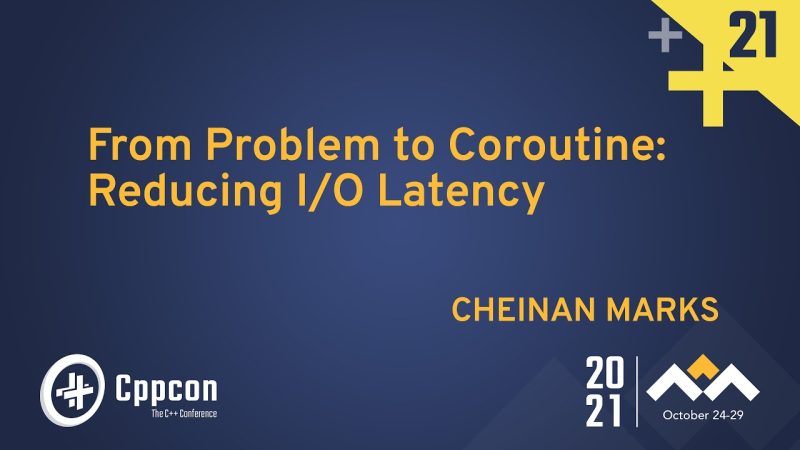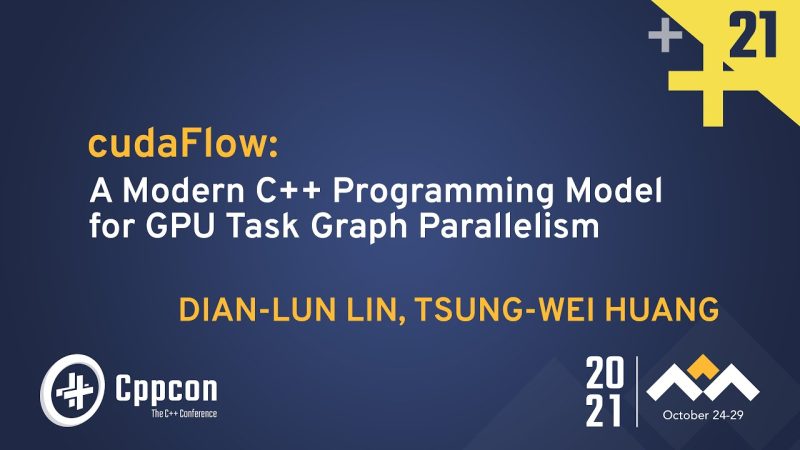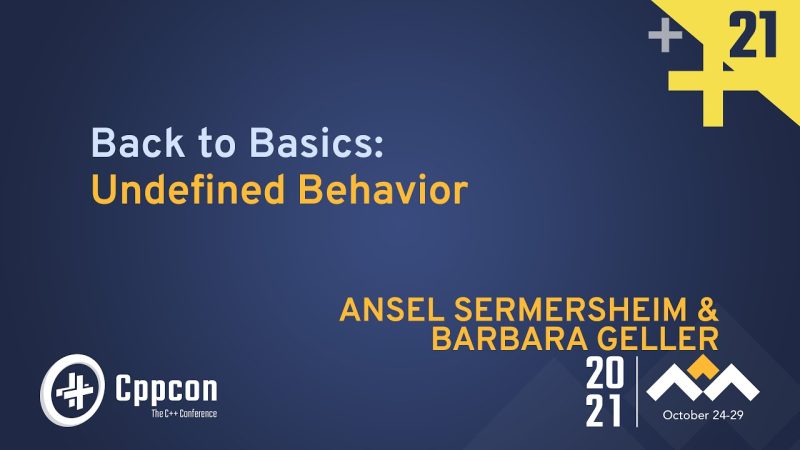https://cppcon.org/
https://github.com/CppCon/CppCon2020
---
C++20 has way more to offer than the big four concepts, ranges, modules, and coroutines.
Here are a few of the shining pearls.
The spaceship operation automatically creates the six comparison operators. Thanks to consteval, constinit, and improved templates, programming at compile time becomes more powerful. std::span supports safe access to contiguous memory blocks. An enhanced time library and a new type date. Comfortable formatting of data thanks to std::format. Easily synchronize or coordinate threats with semaphores or latches and barriers. An improved thread that maintains itself and supports interruption. Thanks to the synchronized output streams, write operations in the concurrent environment do not end in a mess.
---
Rainer Grimm
I've worked as a software architect, team lead, and instructor since 1999. In 2002, I created company-intern meetings for further education. I have given training courses since 2002. My first tutorials were about proprietary management software, but I began teaching Python and C++ soon after. In my spare time, I like to write articles about C++, Python, and Haskell. I also like to speak at conferences. I publish weekly on my English blog (https://www.modernescpp.com/) and the (https://www.grimm-jaud.de/index.php/blog), hosted by Heise Developer. Since 2016 he is an independent instructor giving seminars about modern C++ and Python. Rainer published several books in various languages to modern C++ and concurrency, C++20, and the C++ Core Guidelines, in particular. Due to his profession, Rainer always searches for the best way to teach modern C++
---
Videos Streamed & Edited by Digital Medium: http://online.digital-medium.co.uk
The CppCon YouTube Channel Is Sponsored By:
JetBrains : http://jb.gg/cpptools
SonarSource: https://www.sonarsource.com/


